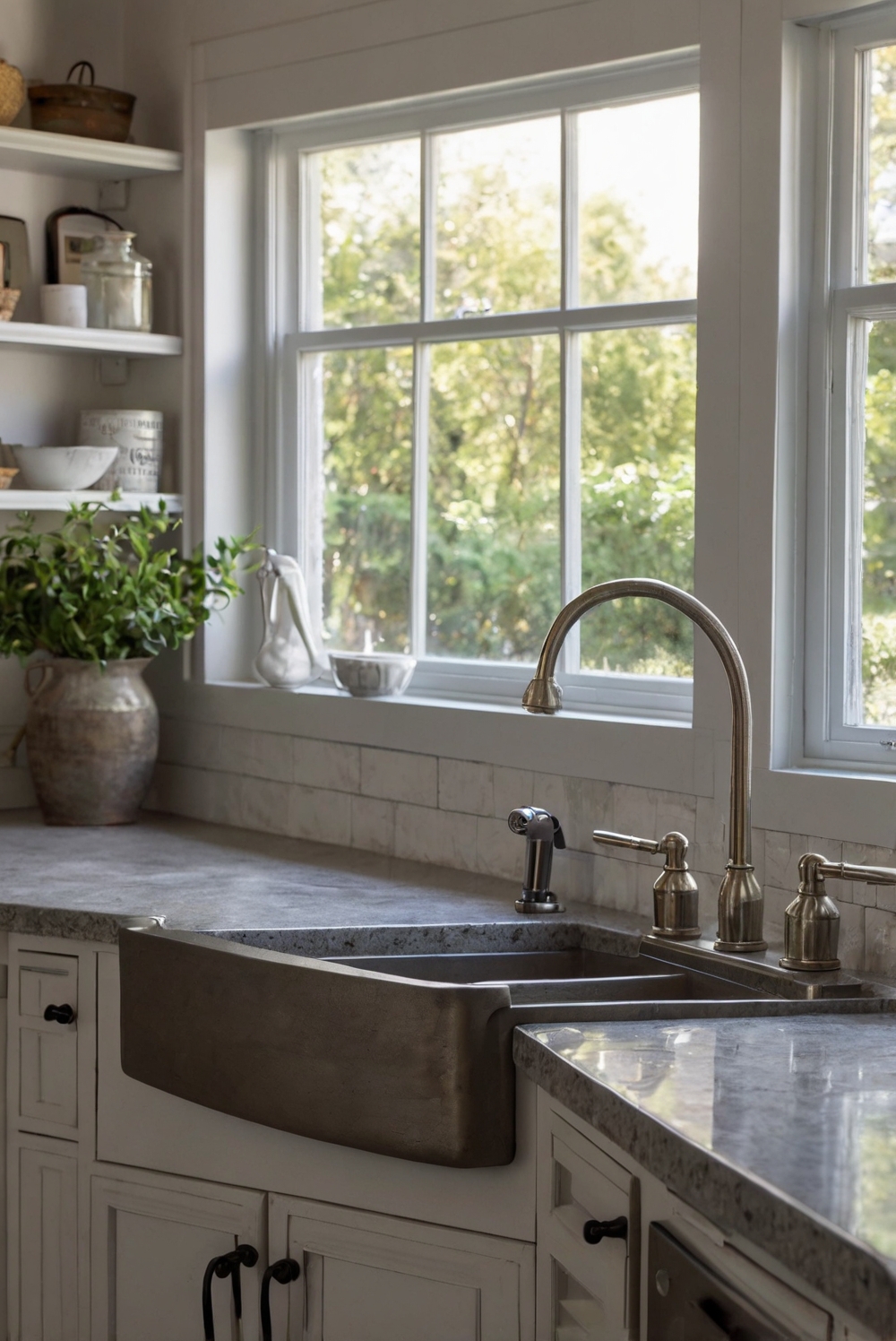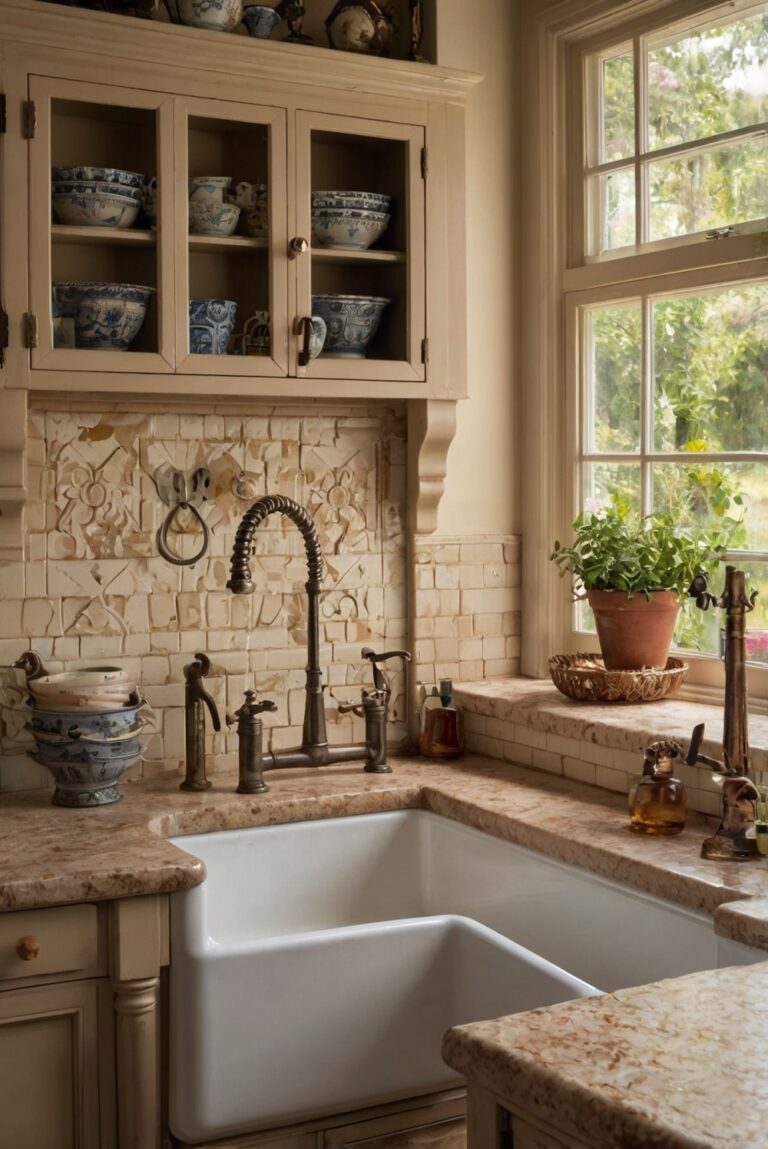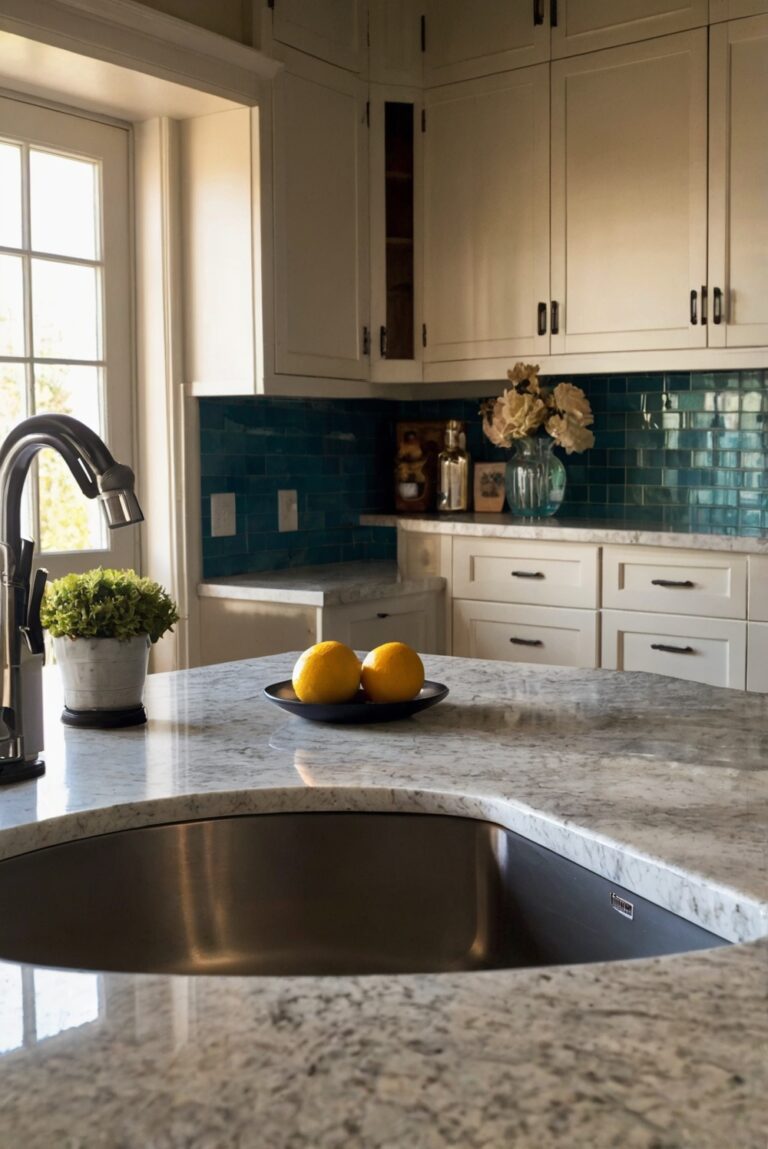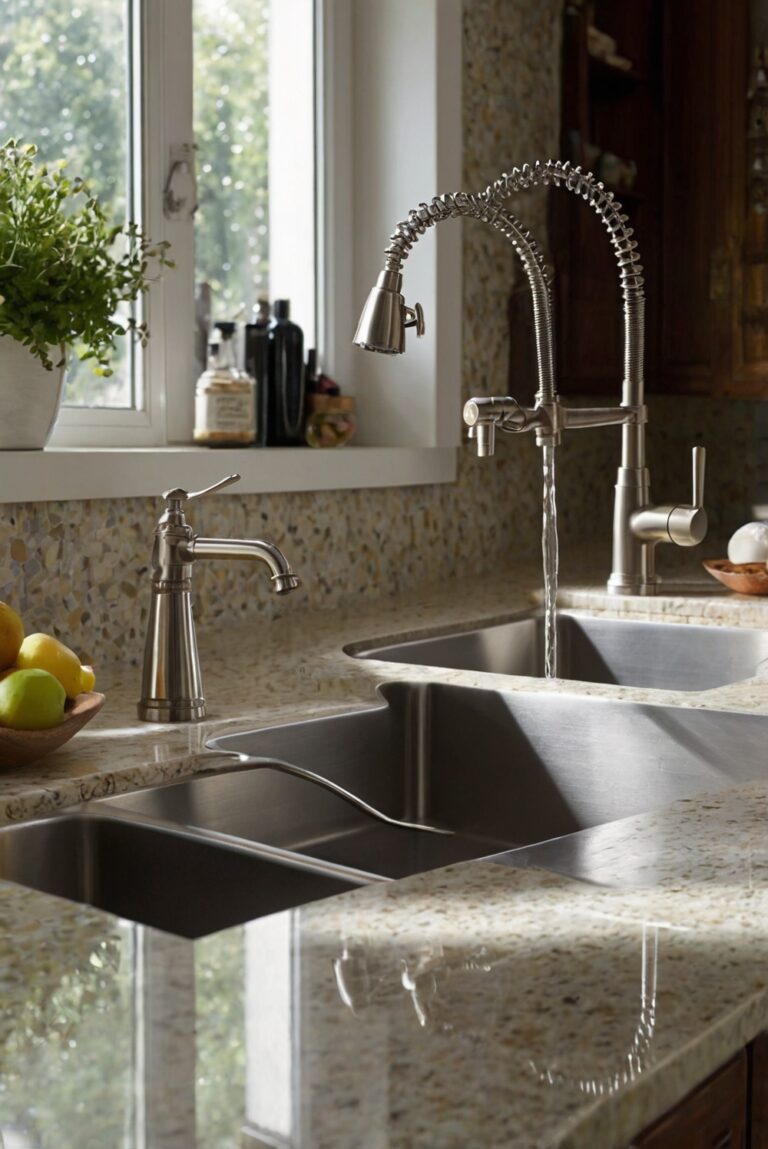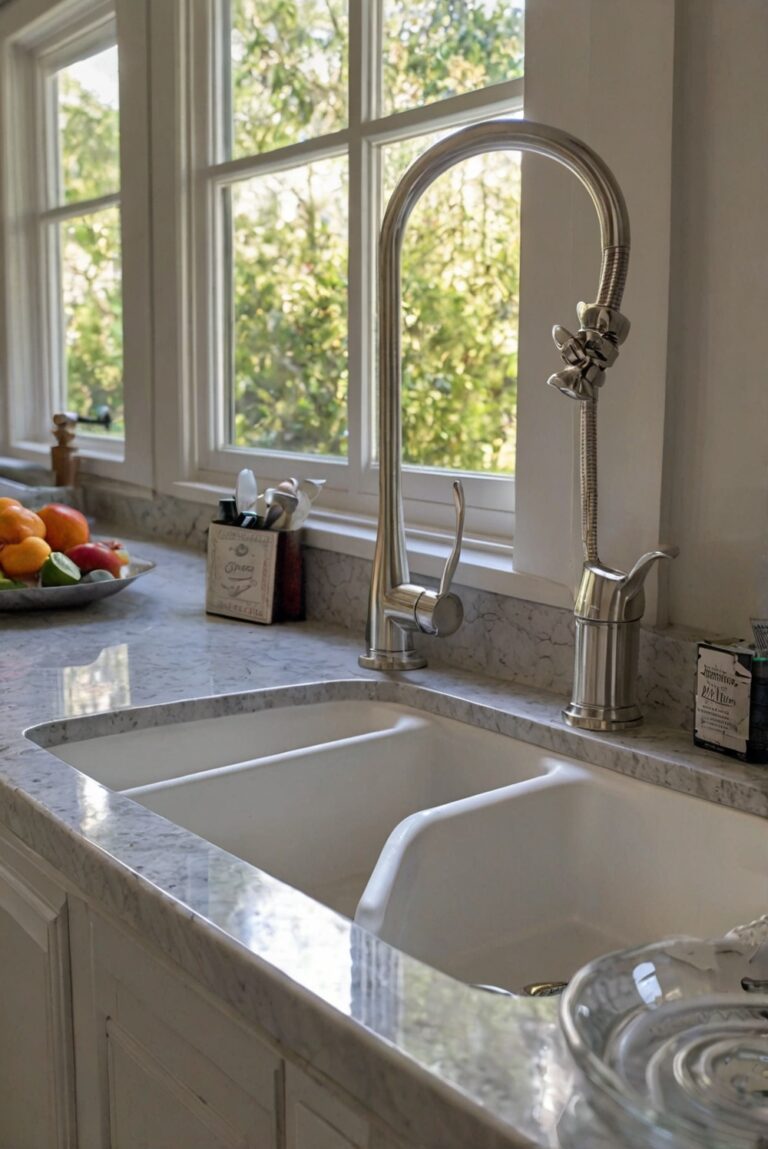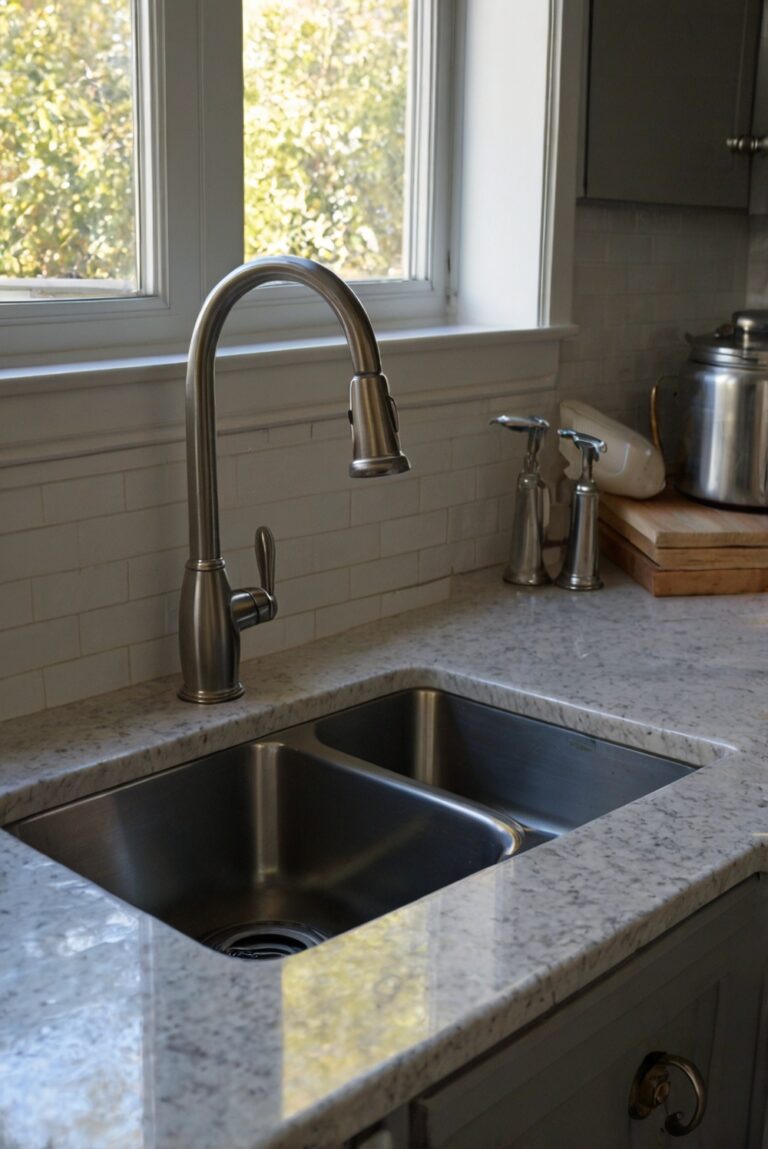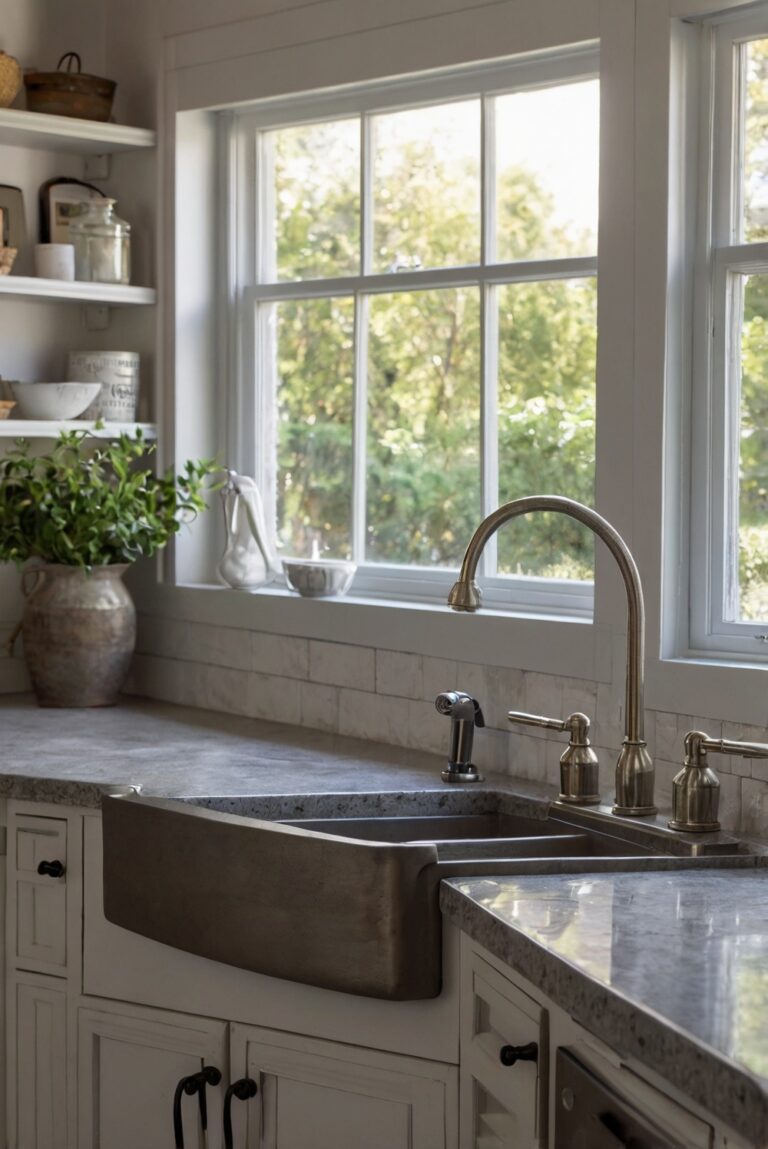Discover the ultimate guide to selecting a kitchen sink with soundproofing elements. Enhance your daily routine as an interior designer with the perfect blend of functionality and style.
To choose a kitchen sink with soundproofing features, consider the material, size, and design. Opt for a heavy and dense material like stainless steel or cast iron, as they offer better sound insulation. Look for sinks with a padded undercoating or sound-absorbing pads to reduce noise from water splashing and dishes clattering. Additionally, choose a sink with a deep bowl to minimize sound reverberation. Ensure proper installation with silicone sealant to further reduce noise. In terms of design, a single bowl sink may be quieter than a double bowl sink due to fewer seams. Overall, selecting a soundproofed kitchen sink can enhance your home interior by providing a quieter and more peaceful cooking environment, particularly beneficial for open-concept spaces. Remember to focus on both functionality and aesthetics when choosing a sink that complements your kitchen design.
What is Soundproofing in a Kitchen Sink?
Soundproofing in a kitchen sink refers to the technology or materials used to reduce the noise created when water flows into the sink, dishes are washed, or garbage disposal is in use. It helps to minimize the sound of splashing water, clattering dishes, and the rumbling noise from the garbage disposal. Soundproofing features can make your kitchen experience more pleasant by reducing the noise levels in the sink area.
Why is Soundproofing Important in a Kitchen Sink?
Soundproofing is important in a kitchen sink because it helps to create a quieter and more peaceful environment in your kitchen. The noise from a sink can be quite loud and disruptive, especially in open-concept living spaces where the kitchen is connected to the living or dining area. By reducing the noise levels in the sink, you can enjoy a more comfortable cooking and cleaning experience without disturbing others in the house.
Benefits of Choosing a Kitchen Sink with Soundproofing Features
Choosing a kitchen sink with soundproofing features offers several benefits. Firstly, it helps to reduce noise levels in the kitchen, creating a more peaceful environment. This is particularly important if you have an open-concept living space or if you enjoy entertaining guests while cooking. Secondly, soundproofing can also help to prevent the sink from sounding hollow or tinny when water hits the surface, giving it a more solid and high-quality feel. Additionally, soundproofing can help to protect the sink from damage by reducing vibrations and minimizing the risk of cracking or chipping.
Factors to Consider When Choosing a Kitchen Sink with Soundproofing Features
When selecting a kitchen sink with soundproofing features, there are several factors to consider. Firstly, look for sinks that are made of heavy-duty materials such as stainless steel or granite composite, as these materials naturally absorb sound. Secondly, consider the thickness of the sink material, as thicker sinks tend to be more soundproof. Additionally, check if the sink has a soundproofing coating or padding on the underside to further reduce noise levels. Finally, consider the design and style of the sink to ensure it complements your kitchen decor while offering soundproofing benefits.
Tips for Maintaining a Soundproof Kitchen Sink
To maintain the soundproofing features of your kitchen sink, it is important to clean and care for it properly. Avoid using harsh chemicals or abrasive cleaners that can damage the soundproofing materials. Instead, use mild soap and water to clean the sink regularly. Additionally, avoid dropping heavy objects or banging dishes against the sink, as this can cause damage to the soundproofing elements. Finally, check for any signs of wear or damage to the soundproofing features and address them promptly to ensure your sink remains quiet and functional.
In conclusion, choosing a kitchen sink with soundproofing features can greatly enhance your kitchen experience by reducing noise levels and creating a more peaceful environment. By considering the factors mentioned above and following the tips for maintenance, you can select a sink that not only looks great in your kitchen but also provides the soundproofing benefits you desire. A quiet sink can make a significant difference in your daily routine, making cooking and cleaning tasks more enjoyable and less disruptive.
1. What are the benefits of choosing a kitchen sink with soundproofing features?
Choosing a kitchen sink with soundproofing features can significantly reduce noise levels created during dishwashing, food preparation, and disposal usage. This can create a quieter and more peaceful kitchen environment, especially in open-concept living spaces. Soundproofing also helps to minimize vibrations and echoes, resulting in a more enjoyable cooking experience. Additionally, it can prevent noise disturbances for family members or housemates in nearby rooms. Overall, investing in a soundproof kitchen sink can enhance the overall comfort and functionality of your kitchen space.
2. How to identify a kitchen sink with effective soundproofing features?
When choosing a kitchen sink with soundproofing features, look for sinks that are made from high-quality materials such as stainless steel or granite composite, as these materials naturally dampen sound. Additionally, check if the sink has a thick undercoating or padding to absorb noise and vibrations. Some sinks come with sound-dampening pads or spray-on coatings that further reduce noise levels. Consider sinks with a lower gauge number, as thicker materials tend to be more soundproof. Reading product reviews and researching different brands known for their soundproofing technology can also help you identify an effective sink.
3. Are there specific soundproofing technologies to look for in a kitchen sink?
Several soundproofing technologies can enhance the noise-reducing capabilities of a kitchen sink. Look for sinks equipped with sound-dampening pads made from materials like rubber or asphalt. These pads are often attached to the underside of the sink to absorb sound and prevent vibrations. Some sinks feature a spray-on coating or a thick undercoating that further reduces noise levels. Additionally, sinks with a layer of insulation or specially designed soundproofing materials can provide superior soundproofing performance. Choosing a sink with these advanced technologies can ensure maximum noise reduction in your kitchen.
4. What are the key factors to consider when selecting a kitchen sink with soundproofing features?
When choosing a kitchen sink with soundproofing features, consider the size and configuration of your sink. A larger, deeper sink with soundproofing technology may offer better noise reduction than a smaller, shallower sink. Additionally, the material of the sink plays a crucial role in soundproofing capabilities. Stainless steel sinks are known for their natural sound-dampening properties, while granite composite sinks also provide excellent noise reduction. Look for sinks with a high-quality undercoating or padding to minimize noise and vibrations effectively. Lastly, consider the installation method and ensure that the sink is properly insulated to prevent noise leakage.
5. How can proper maintenance prolong the soundproofing effectiveness of a kitchen sink?
To ensure the long-term soundproofing effectiveness of your kitchen sink, proper maintenance is essential. Regularly clean the sink and surrounding areas to prevent the buildup of debris or hard water deposits, which can affect soundproofing performance. Avoid using abrasive cleaners or harsh chemicals that can damage the soundproofing materials. Inspect the sink periodically for any signs of wear or damage to the soundproofing pads or coatings and address any issues promptly. Additionally, avoid dropping heavy objects or banging dishes in the sink, as this can compromise the soundproofing features over time. By following these maintenance tips, you can prolong the soundproofing effectiveness of your kitchen sink and enjoy a quieter cooking experience for years to come.

